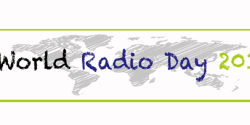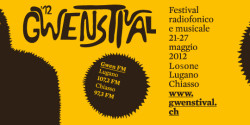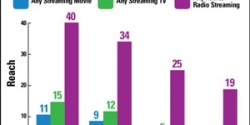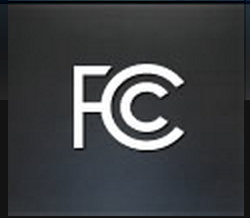
Hundreds of international producers submit tributes to World Radio Day
In celebration of World Radio Day 2013, almost 350 producers have submitted one minute tributes to the wrd13 website. They come from Egypt, Ireland, Columbia, Bulgaria, Indonesia . . . pretty much everywhere. You can listen to them via this catalogue. And you can upload your own recording for the event. No need to be […]

LPFM Hopefuls Convene in Seattle for World Radio Day
On the occasion of World Radio Day, a special event focused on LPFM opportunities will take place in Seattle today. Brown Paper Tickets is presenting a free community open house and press conference featuring several non-profit groups who plan to apply for new LPFM licenses in Seattle. The event will take place today (Wednesday, February […]

Global radio will converge at the Gwenstival in Switzerland
Happy World Radio Day Radio Survivor readers! Apropos, every year Radio Gwendalyn puts out a call for radio visions and the Swiss web radio outlet airs them during The Gwenstival. This year the celebration of adventurous radio content will stream in FM over two cities in Ticino—the southern and Italian speaking region of Switzerland—they being Mendrisiotto […]

mtvU announces 25 finalists for College Radio Woodie Award
After an initial nomination round, mtvU has announced the 25 finalists for the 2013 College Radio Woodie Award. Online voting will whittle this list down to 10 finalists and web visitors can vote until Wednesday, February 20th at 4pm EST. The award recognizes stellar college radio stations. Last year’s winner was WASU at Appalachian State […]

KSJS Celebrates 50th Anniversary
San Jose State University’s student radio station KSJS turned 50 yesterday. The 90.5 FM station broadcasts at 1500 watts from San Jose, California. I visited KSJS back in March, 2009 and the philosophy of the station seems largely the same today (although there have been technological advancements and KSJS now has regular online broadcasts in […]

Study says streaming audio reaches more Americans than video
It’s often treated as a fact that young adults don’t listen to radio and prefer pirate music, but a recent USA TouchPoints survey (via Radio and Internet Newsletter) says that a full 40% of Americans aged 18–24 listen to streaming audio online every week. Older demographics are also tuning in online, with 34% of 25–34 […]

Volunteers needed to help WBAI in NYC move to City College station
The latest tweet from Pacifica station WBAI in New York City asks for help moving the operation out of its Wall Street digs: WBAI is “movin’ on up”. Volunteers are needed to help pack all day long this week. Email ops@wbai.org. According to a station staff announcement, BAI will temporarily move its studios to City […]

Do your tweets talk to your website? A college/community radio social networking checklist
I am slowly but surely adding college and community radio Facebook pages around the world to our Radio Survivor Facebook “like” list. Ditto for Twitter accounts—they’re getting added to our “stations we follow” list. In the course of this pleasant but laborious work, I have observed a few sites that could use some updating. Here are […]

Make way for LPFM: FCC dismisses 3000 translator station applications
According to the Fifth Report and Order released in March, the FCC has started dismissing backlogged translator station applications based non ational and local caps. In that Order the FCC established caps for the number of applications a single applicant could pursue in a given market, and nationwide, in order to ensure open frequencies are […]

11-year-old College Radio DJ Hosts Show on Rockford College Radio
Last night, 11-year-old college radio DJ Myles Buchanan hosted his second radio show on Rockford College Radio, an Internet radio station in Rockford, Illinois. Dubbing himself the Radio Kid, Buchanan is behind the mic for The Scoop, a program aimed at kids like himself. On the first episode, which aired on January 22, Buchanan was […]
